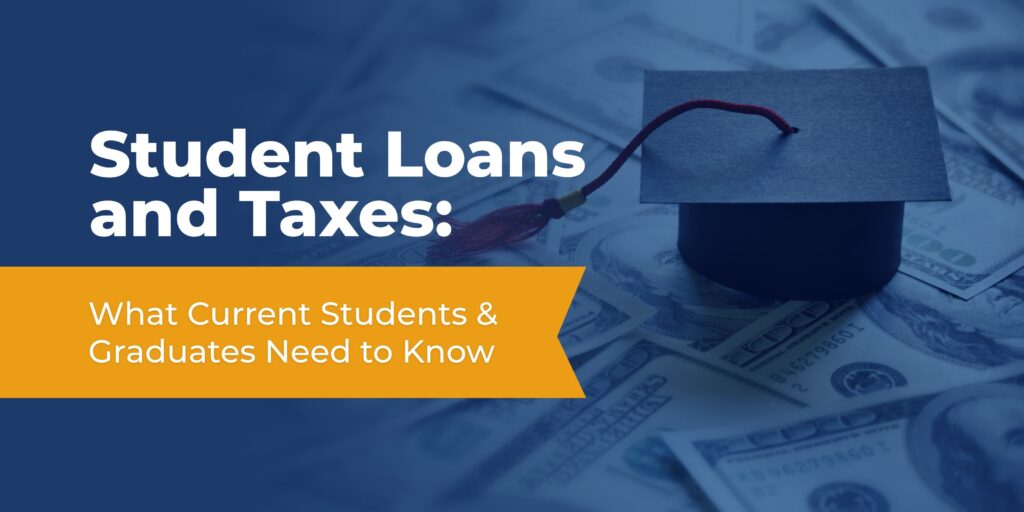Understanding how student loans impact your taxes is crucial for both current students and graduates. Whether you’re still in school or have already crossed the stage, grasping the tax implications of your student loans can save you money and prevent potential headaches down the road. In this comprehensive guide, we’ll break down everything you need to know about student loans and taxes, from deductions to credits and everything in between.
Are Students Required to File Taxes?
Many students wonder whether they’re required to file taxes, especially if they’re working part-time or receiving financial aid. The answer depends on several factors, including income level, filing status, and dependency status. Generally, if your income exceeds a certain threshold, you’re required to file taxes, regardless of your student status. For example, for the tax year 2023, single individuals under the age of 65 are required to file taxes if their income exceeds $13,850. Keep in mind that your student loans do not count as income. Scholarships, fellowship money, and other resources given to you for school are not taxable. The taxable portion of the funds would be expenses such as travel, room and board, or optional expenses.
However, even if your income falls below the threshold, filing taxes might still be beneficial. You may be eligible for tax credits, such as the Earned Income Tax Credit (EITC) or the refundable portion of the American Opportunity Tax Credit (AOTC). Additionally, if you’ve had federal income tax withheld from your paychecks, filing a tax return allows you to claim a refund. It’s essential to understand your tax obligations and potential benefits. Consider consulting with a tax professional or using online resources to determine whether you need to file taxes as a student.
Understanding Student Loan Interest Deduction
One of the most significant tax benefits for student loan borrowers is the student loan interest deduction. This deduction allows you to reduce your taxable income by up to $2,500 for the interest you’ve paid on qualified student loans during the tax year. However, there are certain eligibility criteria to meet:
- You must be legally obligated to pay interest on a qualified student loan.
- Your filing status cannot be married filing separately.
- Your modified adjusted gross income (MAGI) must be below a certain threshold, which is subject to change annually.
It’s essential to keep track of the interest you’ve paid throughout the year. Your student loan servicer will typically send you a Form 1098-E, which outlines the amount of interest paid during the tax year.
Utilizing Education Tax Credits
For those who are still in school or have recently graduated, education tax credits can provide substantial relief. There are two types of credits that you may qualify for when you file: the American Opportunity Tax Credit (AOTC) and the Lifetime Learning Credit (LLC).
- American Opportunity Tax Credit (AOTC): This credit is available for eligible students in their first four years of higher education. It can provide a maximum annual credit of $2,500 per eligible student. Up to 40% of the credit is refundable, meaning you could receive a refund even if you owe no taxes.
- Lifetime Learning Credit (LLC): Unlike the AOTC, the LLC is available for students pursuing higher education, including graduate and professional degrees, as well as courses to acquire or improve job skills. The maximum annual credit is $2,000 per tax return.
Navigating Student Loan Forgiveness and Discharge
We have seen over $165 billion in student loan forgiveness under the Biden Administration. Student loan forgiveness programs, such as Public Service Loan Forgiveness (PSLF) and Teacher Loan Forgiveness, can provide significant relief for borrowers. However, it’s essential to understand the tax implications of forgiven or discharged loans.
Typically, forgiven student loan debt is considered taxable income, unless you qualify for an exception. For instance, loans forgiven under PSLF are not taxable, as they are considered to be discharged due to qualifying employment. However, loan forgiveness under IDR plans are temporarily exempt from federal taxes under the American Rescue Plan Act of 2021. The ARPA states that student loan forgiveness occurring between January 1, 2021, and December 31, 2025, is exempt from federal taxable income. At the state level, most student loan forgiveness will go untaxed. There are a few states that have announced their plans to tax the loan discharge as income. These include Arkansas, Indiana, North Carolina, Mississippi and Wisconsin.
Tax Help for Student Loan Borrowers
Navigating the intersection of student loans and taxes can be complex. Understanding the fundamentals can help you make informed decisions and maximize available tax benefits. Whether you’re currently enrolled in school or have graduated and are repaying your loans, staying informed about student loan interest deductions, education tax credits, and potential tax implications of loan forgiveness is essential. By staying proactive and seeking guidance when needed, you can navigate taxes as financially sound as possible. For complicated tax situations, it’s always best to work with a professional when you file. Optima Tax Relief assists clients with unmanageable tax liabilities find relief and remain compliant with the IRS.
If You Need Tax Help, Contact Us Today for a Free Consultation
Publisher: Source link











